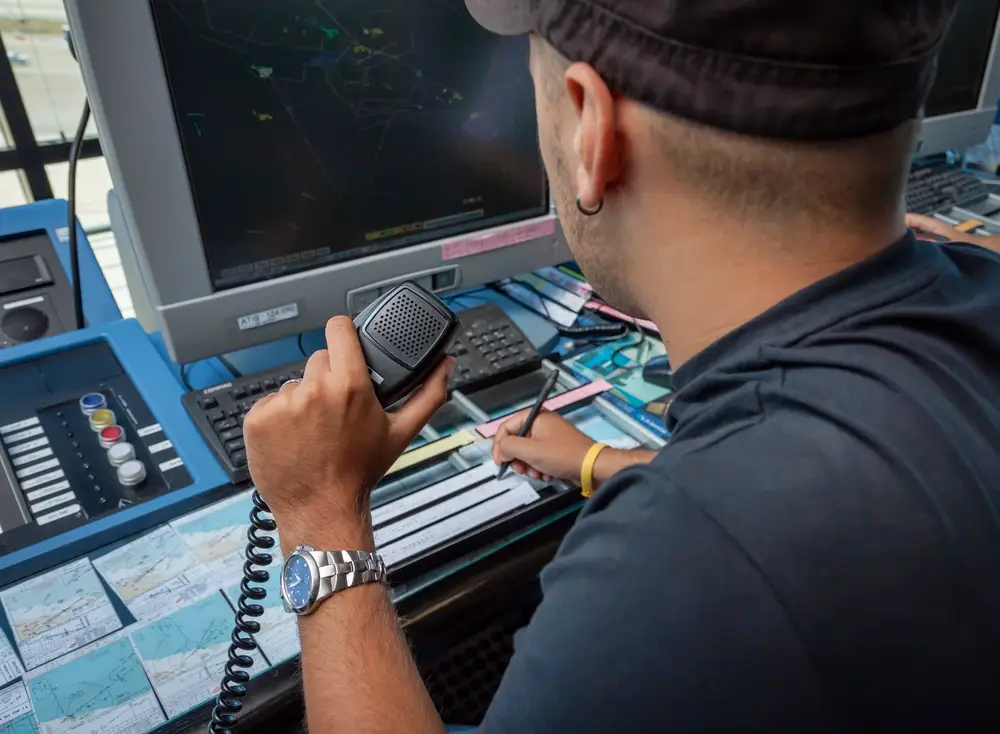Just Culture
IN JUST CULTURE WE TRUST
Just Culture is about learning, which means Just Culture is about the reflection on what happened and why it happened. Just Culture means to explain the incident or event not to find the sole root cause. On the contrary, blaming means to narrow the event down to one single view, without looking for a good explanation. Just Culture acknowledges that failure is inevitable in a complex system. If a failure is happening, Just Culture will try to explain how the system can be improved in the aftermath of the event. The ideals of Just Culture will be achieved with collaboration and understanding of all views within the ATM system. Allowing the view from below and at the same time giving the view from above the means to respond to failure is a difficult balance… BE AWARE this is a real big group that includes stakeholders even outside your ANSP!

The following feature articles on Just Culture were published following the conviction of an Air Traffic Controller in Switzerland mid-2019. They seek to trigger thoughts and ideas for how to proceed.
IFATCA Just Culture Guidance Material
Just Culture has been at the forefront of IFATCA’s professional and legal debates for many years. This guidance material will assist Member Associations in preparing and sustaining Just Culture in their organisations.
JUST CULTURE TOOLBOX
Co-authored by the ATM Partners for Just Culture: ATCEUC, CANSO, ETF, IFAIMA, IFATCA, IFATSEA.
SWISSATCA JUST CULTURE MANUAL
SwissATCA's comprehensive manual on Just Culture.
MAKING AVIATION SAFER BY NOT BLAMING THE HUMAN, BUT BY LOOKING INTO THE SYSTEM
How to implement a Just Culture?
This is one of the pressing questions that many people ask. Implementing and maintaining a Just Culture is not a straight forward process that can be captured in a checklist or procedure. There is little or no shortcuts to understanding the concepts and ideas behind Just Culture. You, your colleagues, your organisation and everybody involved need to participate in the process and understand what it means to put justice over power, to allow different perspectives, to be curious about how things work, to listen to the view from below, to explore new ways of accountability and to develop explanations of system behaviour.


Just Culture takes time and commitment.
Just Culture is about improving the safety of the aviation system. It is about promoting a culture of trust where controllers and other personell can openly report and share information without fear of consequences. This results in a more robust safety culture that ultimately benefits all airspace users. JC is about the safety of the system and is defined as follows:
A culture in which front line operators or others are not punished for actions, omissions or decisions taken by them that are commensurate with their experience and training, but where gross negligence, wilful violations and destructive acts are not tolerated.
IFATCA, TPM (2018) - LM 11.2.1. Montréal, Canada: IFATCA
HOW TO PROMOTE AND IMPLEMENT JC IN YOUR ANSP/ORGANISATION
In a Just Culture environment, all reports and incidents are treated to find explanations on how to improve the system, instead of finding the culprit or the causes for the incident. As it is stated in ICAO Annex 13, 3.1, “The sole objective of the investigation of an accident or incident shall be the prevention of accidents and incidents. It is not the purpose of this activity to apportion blame or liability.” (ICAO). 2016. Annex 13, 11th Ed. Montréal, Canada: ICAO.
The following points are just a few examples, but provide a good starting point for the promotion and implementation of Just Culture inside your ANSP.
Implementation of a Just Culture inside your ANSP. Please do not expect these to work overnight: not everything will be solved easily and not all aspects will be realised right from the beginning.
Legal Aspects
Verify legal aspects in your State, talk to you national authority and try to influence your legal national framework to support a Just Culture implementation
REPORTING POLICY
Reporting policy and procedures should be in accordance with IFATCA policies (dissemination, cooperation, confidentialy, protection of the safety data). This is necessary to gain trust inside and outside your ANSP. The reporter is a big source of information for your investigation process in this type of reporting; data protection is essential to get the most out of the report and to improve your system
FACILITATING a Just Culture
SYSTEMIC INVESTIGATION VS INDIVIDUAL FOCUS
The focus of an investigation within Just Culture should be on explaining why things happened as they happened instead of looking for probable causes of the incident and identifiying people responsible for it. This would give you an in depth knowledge on how the system is functioning and to improve the system on all levels of it.
FORWARD VS BACKWARD THINKING
The investigation should look into the future evolution of the system, not into loopholes from the past. The aim should be how to improve the system, without looking for a culprit. No one is coming to work to harm people.
LEARNING OPPORTUNITY VS BLAME ATTRIBUTION
An incident is a free lesson learned for the system. When incidents are staying inside the organisation, the organisation will get the possiblility to learn. Instead if the incident is going outside of the ANSP, then this will hinder the possibility of learning. If the incident is treated public, then a different power is working against learning.
CONFIDENTIAL REPORTING
Build up a confidential reporting system. This will be an important part in building up a Just Culture. The reporter needs to be anonymized – only the investigator will know the name – as it is not important who was involved in the incident for the purposes of the report.
DATA PROTECTION
The data derived from reporting needs to be protected from outside of the company. As soon as the incident will go outside of the company it will become a different reality.
GOAL OF A JUST CULTURE
Just culture is to the service of safety, not a means of social control or a disciplinary mechanism.
COLLABORATION
To achieve the ideals of a Just Culture will require collaboration and understanding of others views.
NURTURE
Just Culture is perishable. It requires hard work to be sustained by continued commitment to the ideals and by continuous dialogue. Just culture is not simple. Each event where Just culture is used will have its own unique context.
In a Just Culture environment, all reports and incidents are treated to find explanations on how to improve the system, instead of finding the culprit or the causes for the incident. As it is stated in ICAO Annex 13, 3.1, "The sole objective of the investigation of an accident or incident shall be the prevention of accidents and incidents. It is not the purpose of this activity to apportion blame or liability.
ICAO. 2016. Annex 13, 11th Ed. Montréal, Canada: ICAO.
In a Just Culture environment, all reports and incidents are treated to find explanations on how to improve the system, instead of finding the culprit or the causes for the incident. As it is stated in ICAO Annex 13, 3.1, "The sole objective of the investigation of an accident or incident shall be the prevention of accidents and incidents. It is not the purpose of this activity to apportion blame or liability."
Concrete actions an association can take
Start by convincing your ANSP to endorse a Just Culture policy, ideally signed by the ANSP Executive Board (IFATCA’s Just Culture Policy model(s) — or use best practices from other ANSPs)
Engage staff representatives and all staff – not only from the operational units
Create an awareness programme for your ANSP on the topic of Just Culture: leaflets, advertising, posters, etc.
TAKE IT TO THE NEXT LEVEL
Talk to your regulator about Just Culture and/or invite them to one of the IFATCA Think Safety courses
Engage the media: be open and tell them or teach them why a Just Culture is important to improve aviation safety
Disclaimer
The information provided is not intended to be a checklist, but a starting point on the way to a Just Culture. It is provided as guidance material only, and is based upon international standards, best practices, and IFATCA policies. All users should confirm the requirements of their national regulations and procedures when reviewing this guidance material.









